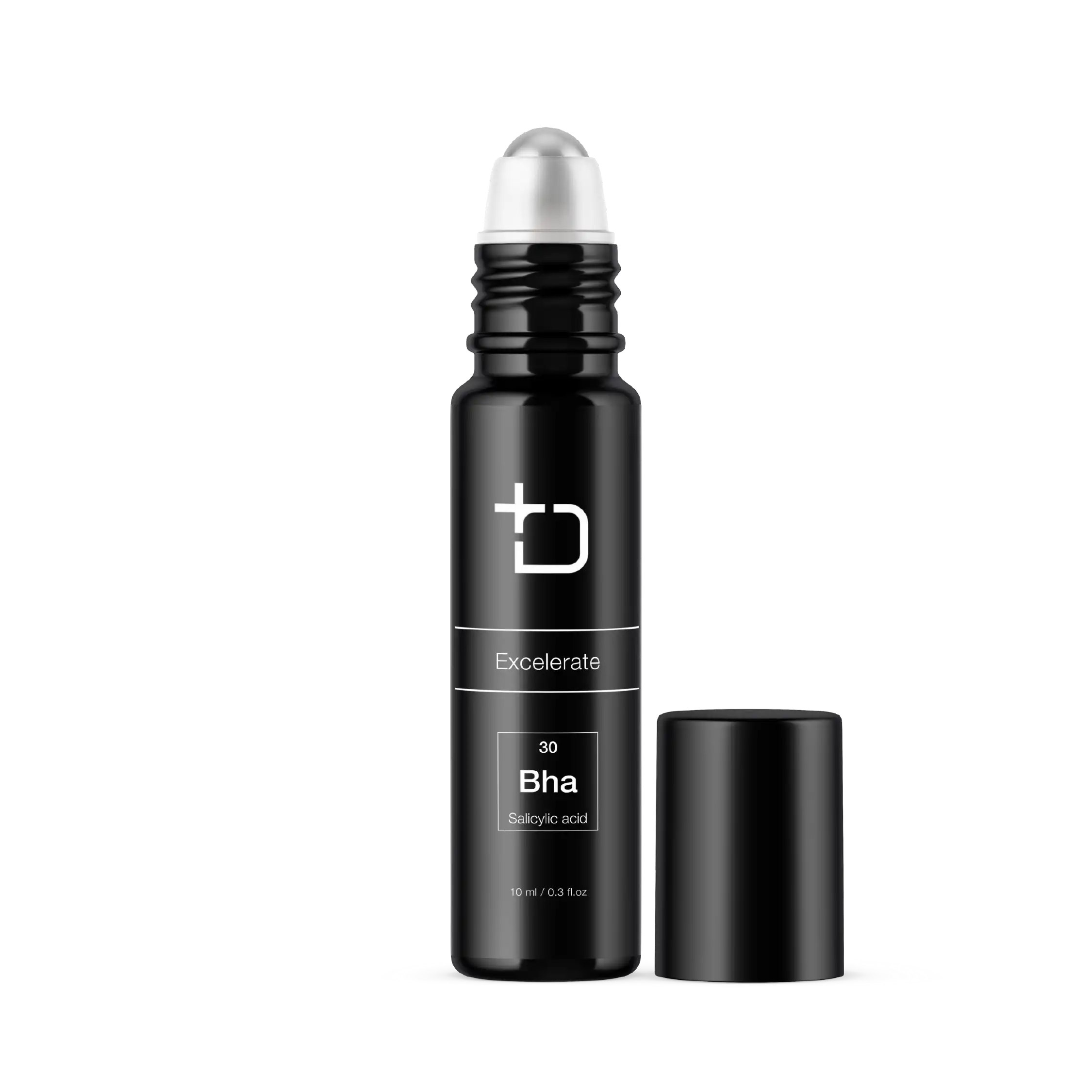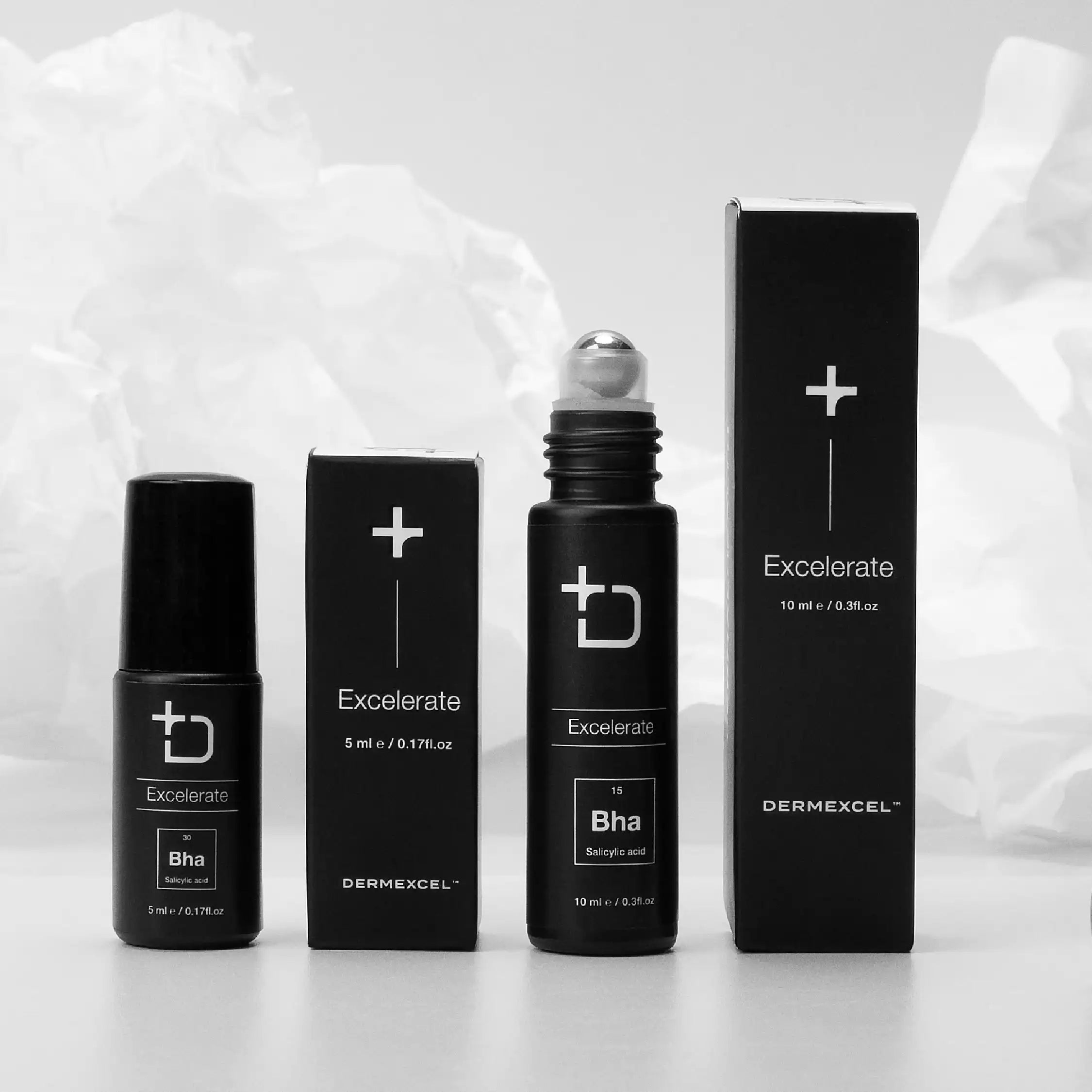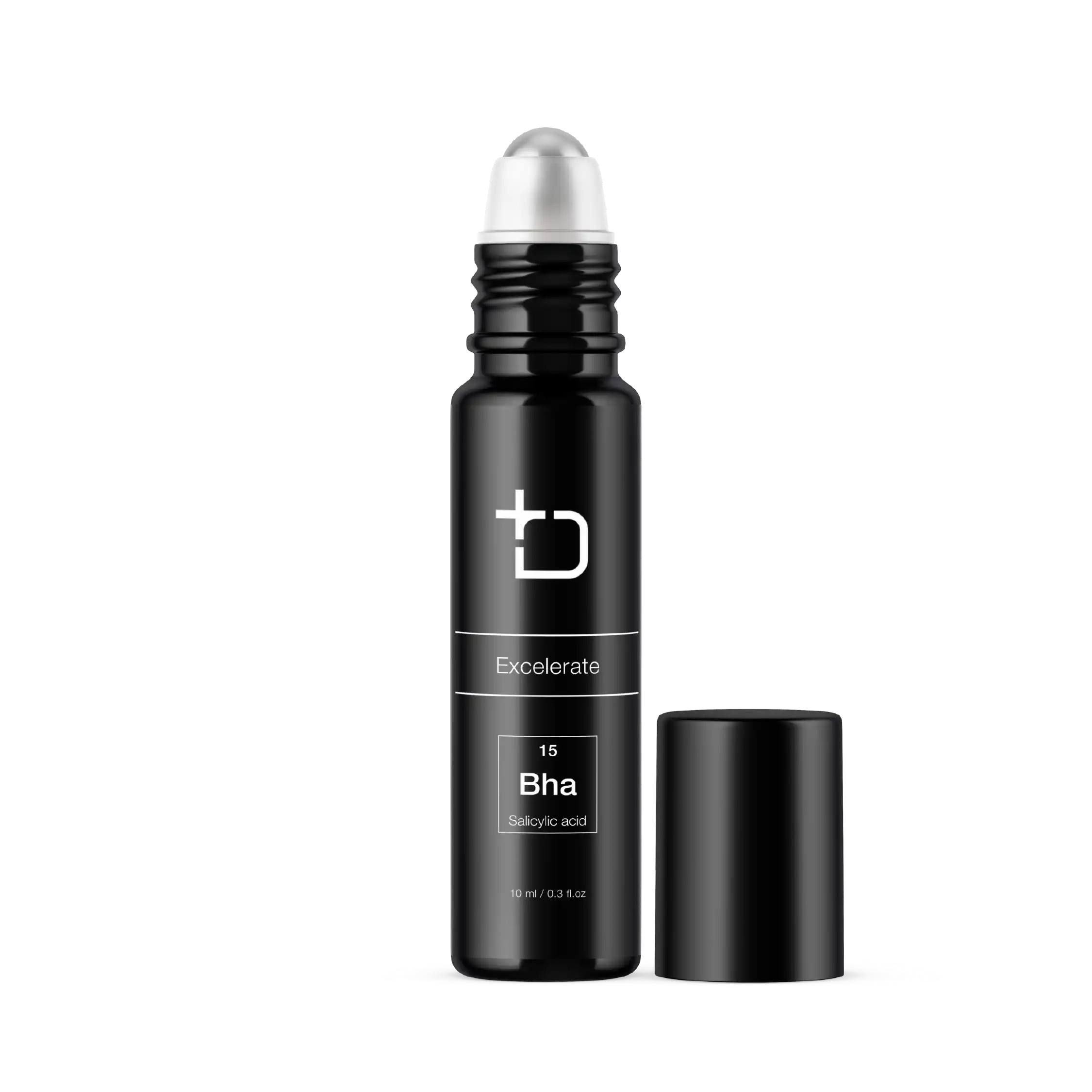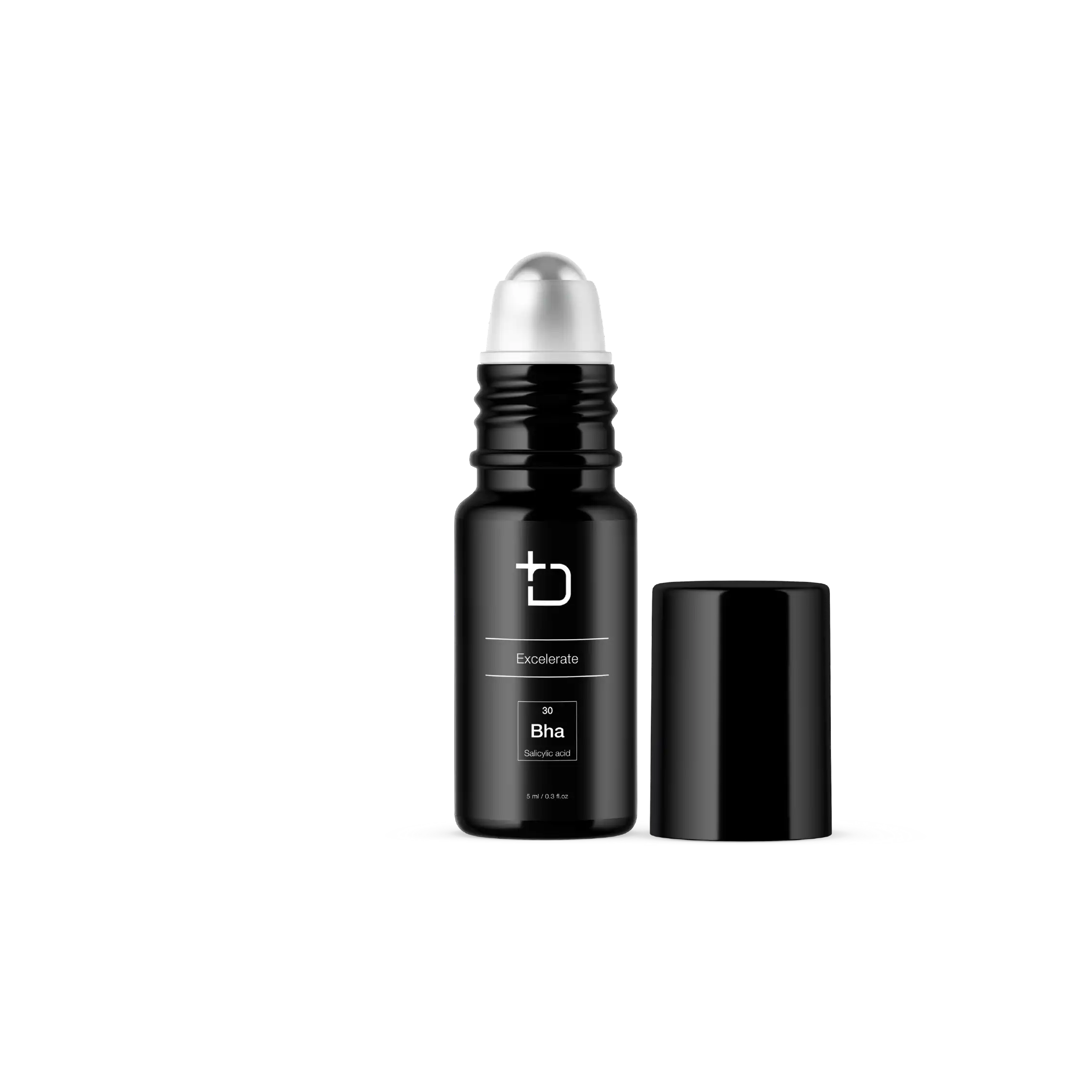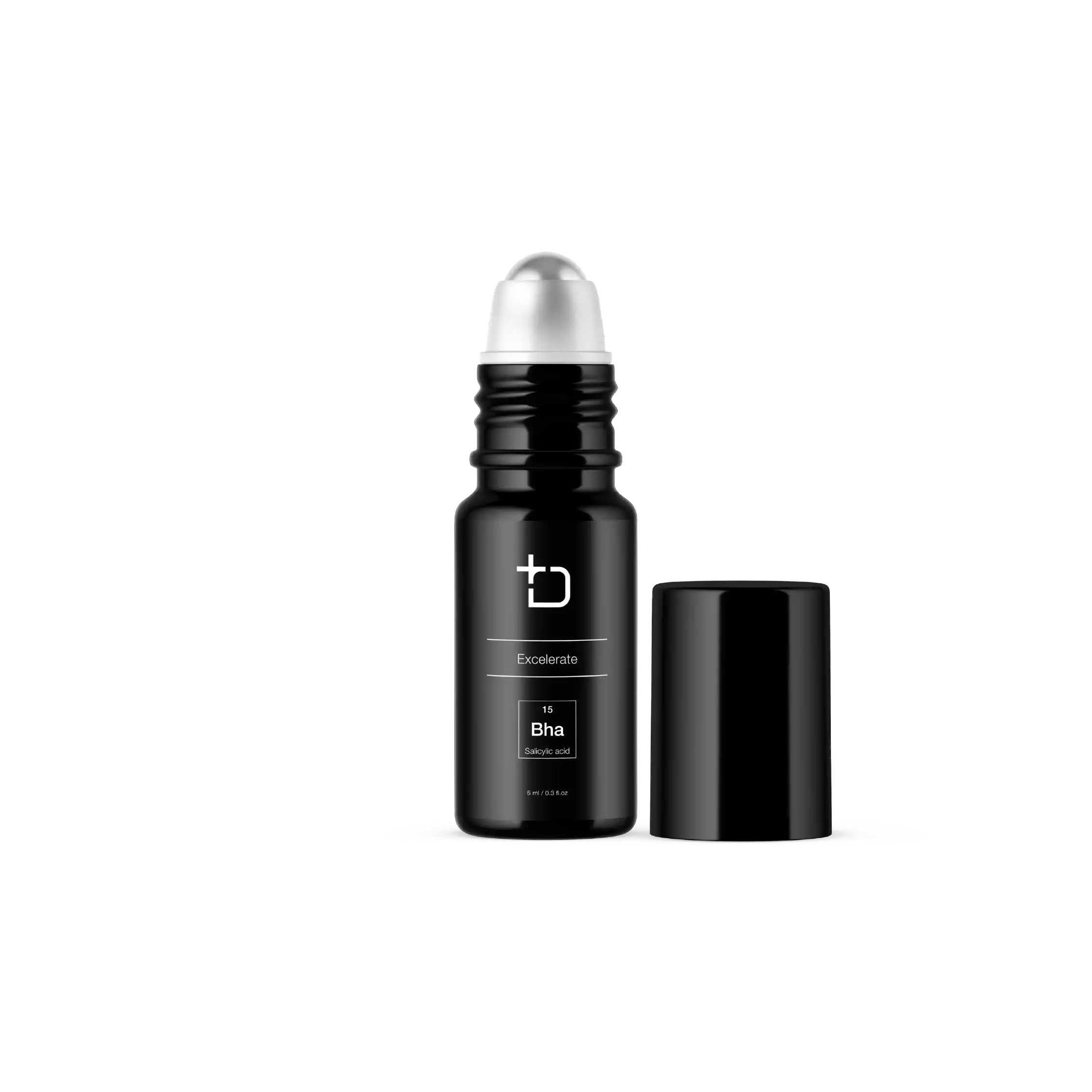A high-potency Salicylic acid treatment available in two strengths – 15% and 30%. This efficacious formulation is designed to systematically counteract acne formation by addressing the critical stages of acne development: comedones, bacteria, and inflammation. It maintains a balance in oil secretion, and its unique keratolytic action accelerates the turnover of skin cells, fostering flaking on the epidermis and inside the pores. This process aids in unclogging pores, a fundamental step in acne management.
The powerful antibacterial properties of Salicylic acid in Excelerate combat acne-causing bacteria, inhibiting their growth and reducing their presence on the skin. This targeted action helps to clear existing acne lesions and prevent the formation of new ones, promoting a clearer complexion. It also down-regulates the inflammatory response associated with acne. Reducing redness and swelling helps soothe the visible signs of inflammation, relieving troubled skin.
Excelerate's dual strengths offer flexibility in treatment options, allowing individuals to choose the appropriate concentration based on their specific needs and skin sensitivity. The 15% strength provides a gentle yet effective approach, while the 30% strength offers a more intensive treatment for stubborn or severe acne.
Excelerate should be used as directed and is recommended for individuals seeking a targeted solution to acne concerns. As with any acne treatment, it is advisable to consult with a healthcare professional or dermatologist to determine the most suitable strength and usage guidelines for your individual skin type and condition.
